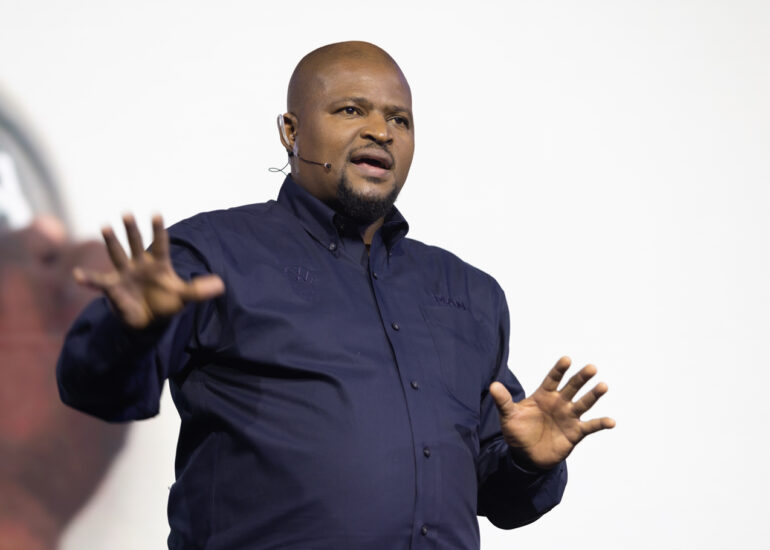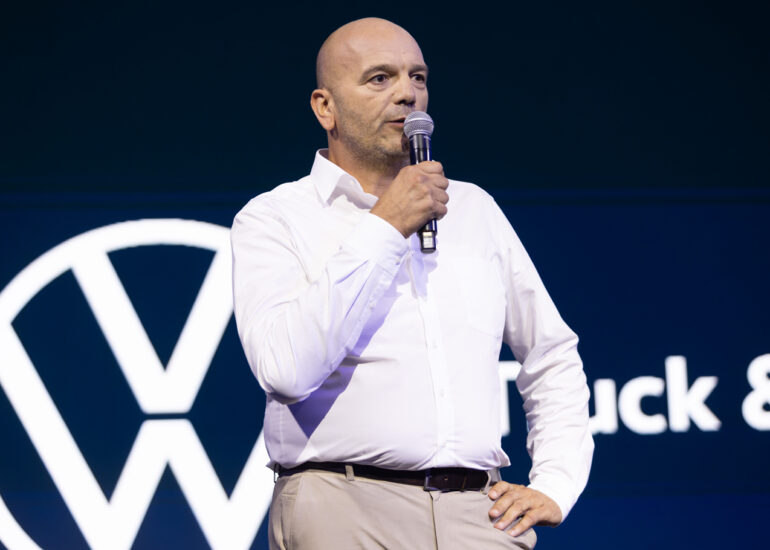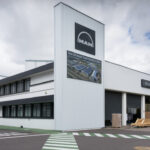Volksbus Yabantu is born!
Volksbus Yabantu is born!
An all-new bus – the Volksbus Yabantu – has been launched in South Africa. CHARLEEN CLARKE reports that this bus is truly unique, because it is the only VW bus in the world that was designed in Germany and is being built in Olifantsfontein.
In the world of transport, it’s rare to come across a truly unique product. Sure, some products are highly innovative. Others have impressive new features. But a totally unique vehicle? Those are virtually unheard of in the transport game.
Until now.
Incredibly, a new Volkswagen bus called the Volksbus Yabantu has arrived in South Africa and, as Siyabonga Nhleko, head of bus sales at MAN Automotive South Africa, points out, it really is unique. “This bus isn’t just unique in South Africa; it is a world first – because it was designed and styled in Germany, it has a Brazilian chassis, and it is being built in South Africa,” he tells FOCUS.
The buses will be manufactured at MAN Bus & Coach, the bus body assembly plant in Olifantsfontein that was founded in 1999. It is responsible for the design, engineering, and production of MAN and VW buses for the South African market and surrounding countries. “We are very proud that this bus is currently being built in our MAN Bus & Coach Plant in Olifantsfontein, which is our pride and joy at MAN. It is the jewel in our crown as it were. MAN is the only South African OEM which boasts its very own bus body-building facility. This gives us the advantage of being a one-stop shop for our customers,” Nhleko points out.
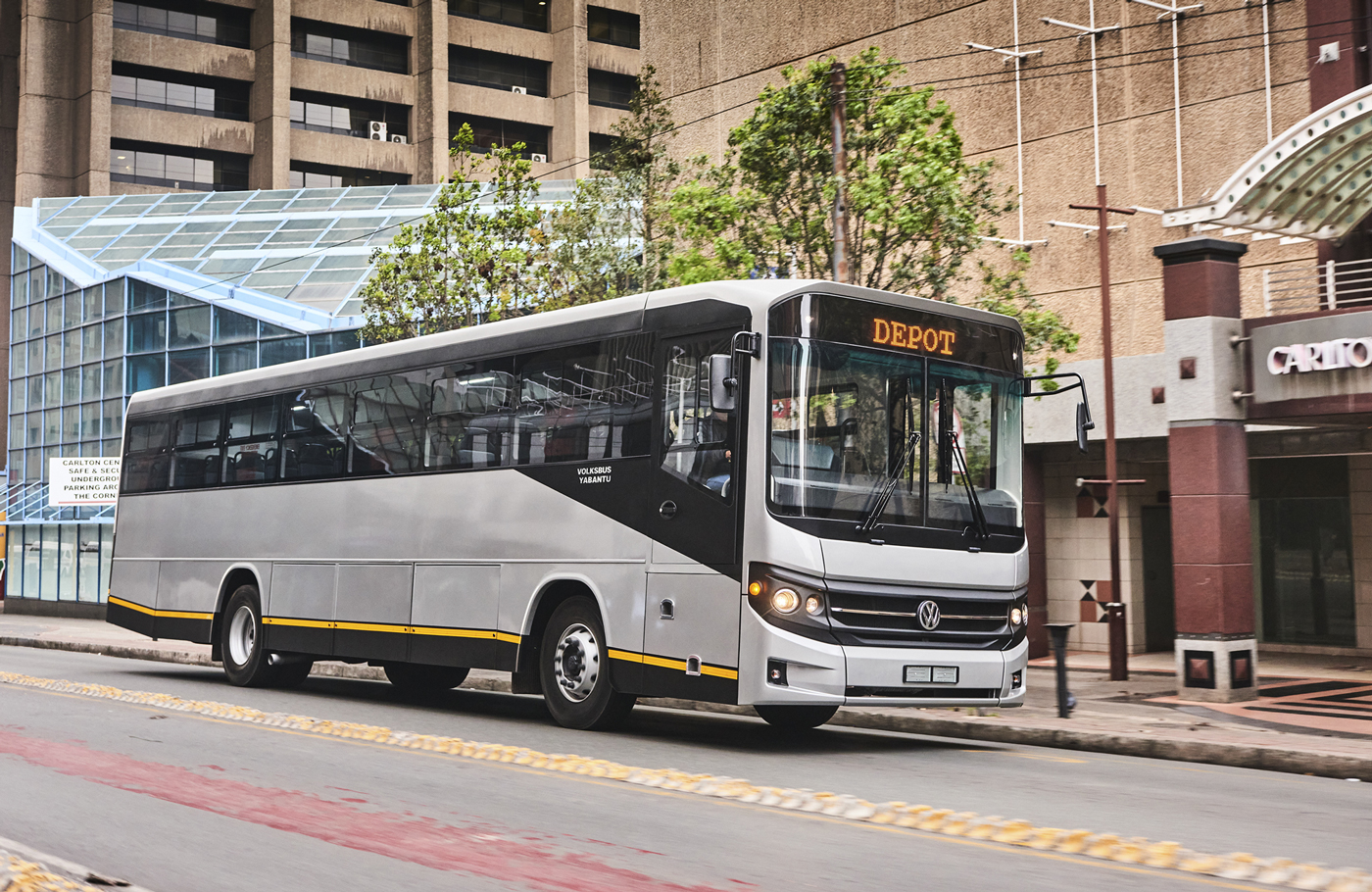
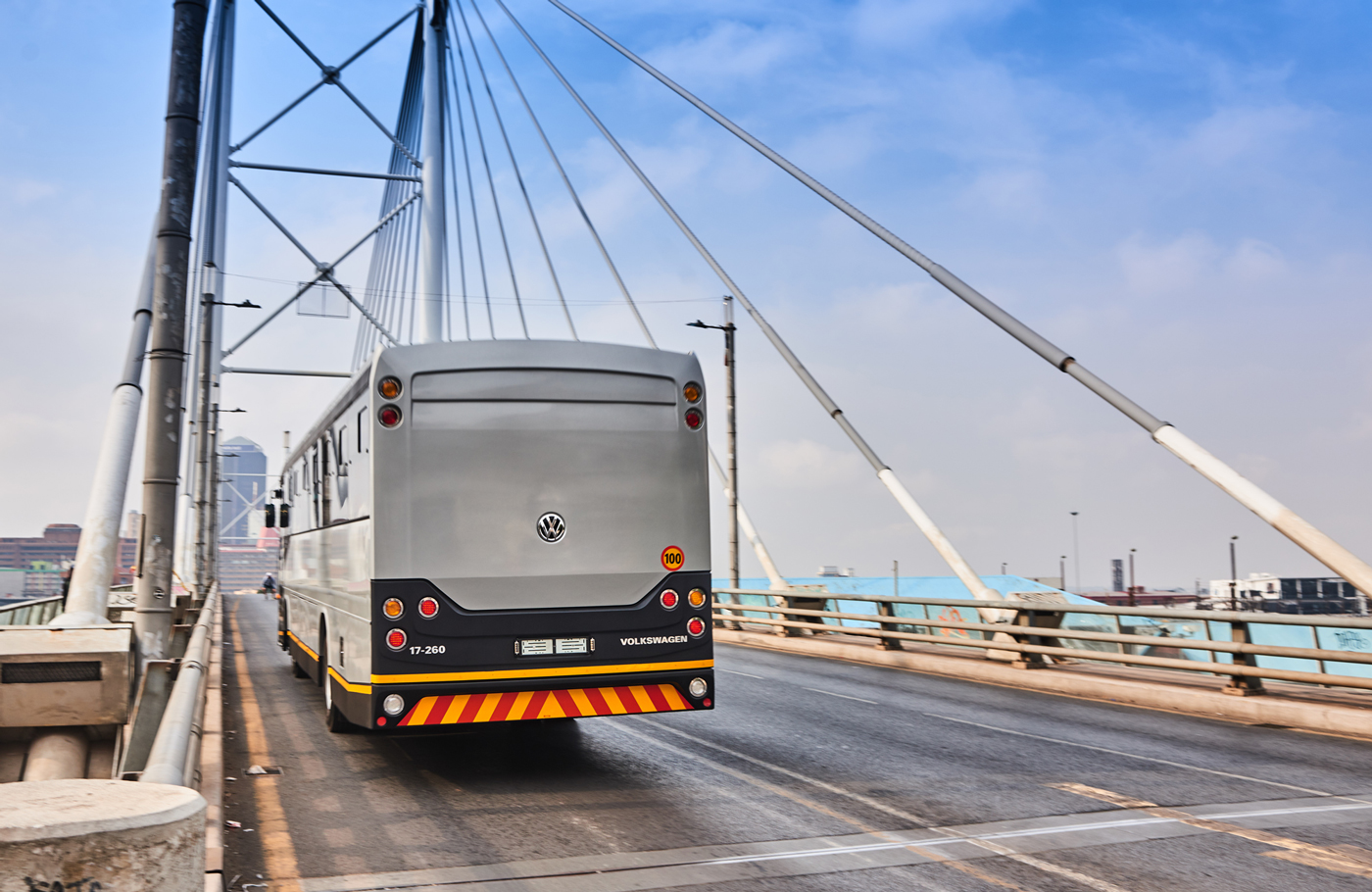
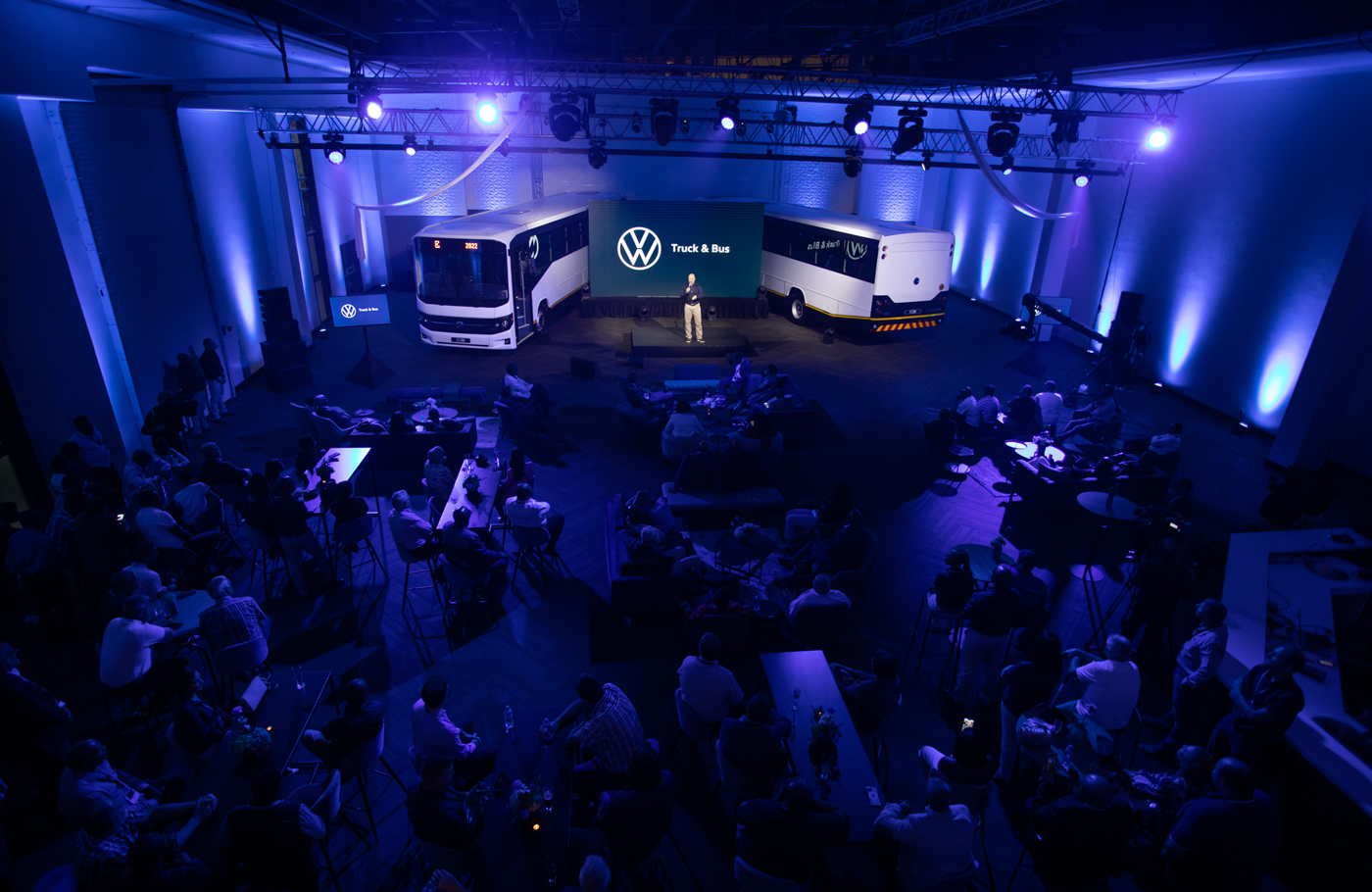
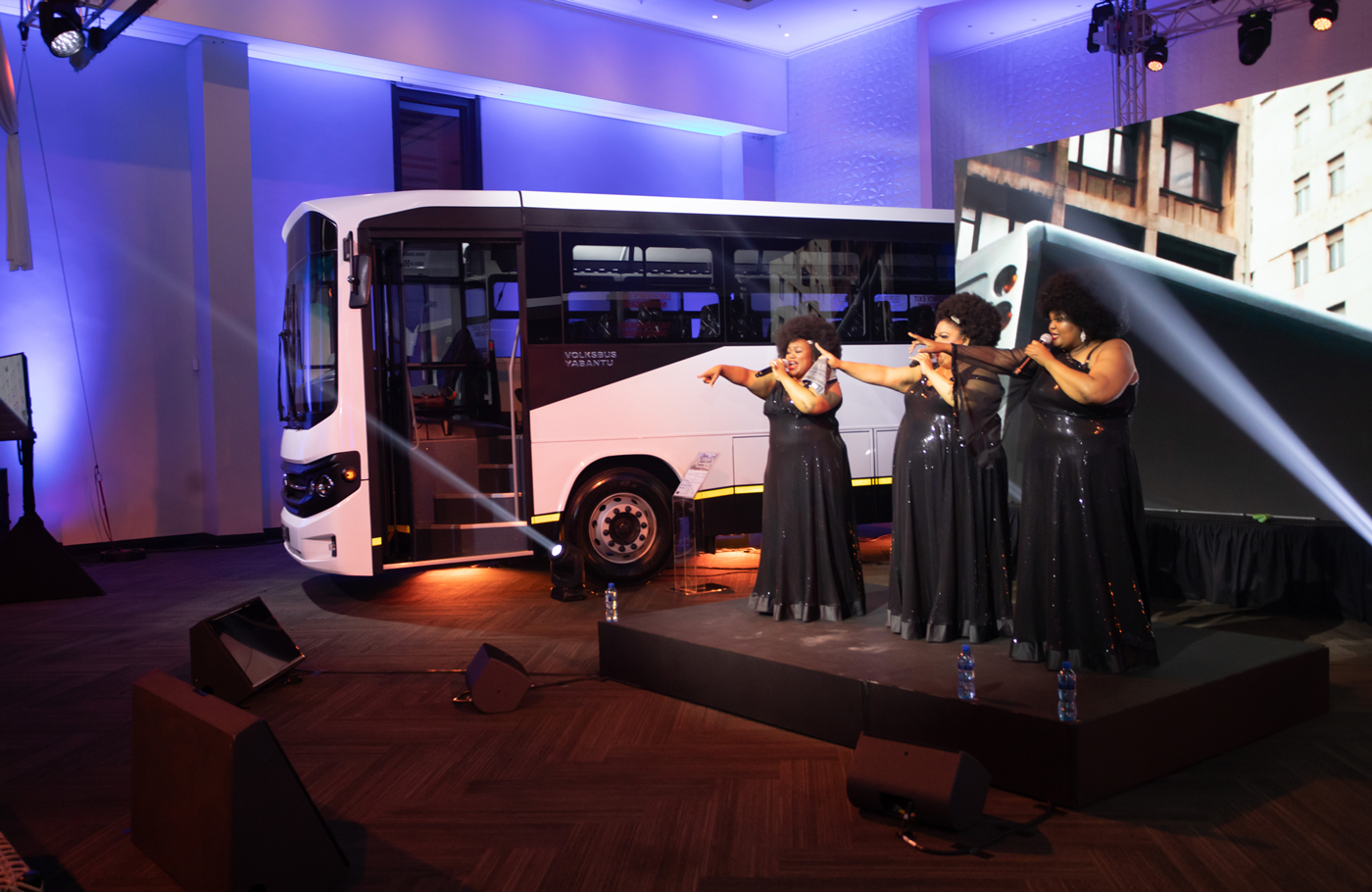
He explains that two derivatives of the all-new VW bus are being launched: the Volksbus Yabantu 17.230 basic version and the Volksbus Yabantu 17.260 higher spec unit. Both versions are fitted with MAN D08 engines and ZF gearboxes. As per its nomenclature, the Volksbus Yabantu 17.230 has a 230-hp engine and a manual gearbox while the higher-specced unit has a 260-hp motor and an automatic gearbox.
Naturally, the styling is totally new compared to the buses’ predecessor, the Volksbus 17.210. “The styling of the new buses is completely different and this revolutionary design is indicative of the VW styling,” notes Nhleko.
There are a number of applications for the Volksbus Yabantu. “It is suited to most types of road applications, as the VW bus brand has been tried and tested all over the country. In the main, the city would obviously come to mind as this is where most people commute to en route to work from their different locations. The new bus will also be ideal to carry our scholars and students to various schools, colleges, and universities. We are also looking forward to seeing this bus featuring in most rural areas, as it is used to handling gravel roads,” says Nhleko.
The bus and coach team at MAN is expecting substantial sales of the Volksbus Yabantu because it offers a number of features that should find favour with customers. “This bus has a Euro 5 engine without AdBlue. This is a big plus for the industry as it will be going in the right direction with regard to CO2 emissions and the much-talked-about Euro standards. This is a step up from the current Euro 3 standards,” emphasises Nhleko. “In addition to this, the VW styling enhances the look and feel of the bus and mirrors VW’s passenger vehicle styling. This bus is as gorgeous and as robust as any VW vehicle and this is what the customer will enjoy,” he predicts.
Above: A scene from the impressive bus launch.
The Volksbus Yabantu joins a wide bus and coach product portfolio, comprising:
- MAN Lion’s Explorer HB2
- MAN Lion’s Explorer HB3 Solo
- MAN Lion’s Explorer HB3 Bi-Articulated
- MAN Lion’s Explorer HB4 Solo
- MAN Lion’s Explorer HB4 Bus Train
- MAN Lion’s City RR9
- MAN RR4 Coach
- Volksbus Yabantu 17.230 Manual
- Volksbus Yabantu 17.260 AMT
“Our range is special because it ensures that we give the market a robust yet comfortable vehicle. This bus range ensures that we cater for all our bus operators’ needs and, in turn, this gives them the opportunity to reach the end user – the commuter, tourist, and traveller,” asserts Nhleko.
Turning to the market in general, he says that it has been a difficult year for customers: “The biggest challenge for operators is the high cost of fuel. This is something that the entire industry needs to take heed of. We must work together in trying to lobby government to reduce prices. As an OEM, we can also act – and add – by not only supplying fuel-efficient vehicles but also by introducing alternative energy buses, which we are most definitely doing with electric bus solutions.”
While industry sales are far from buoyant, MAN has had a very good 2022. “Year to date, MAN has performed remarkably well, and we currently have a market share of above 45%. In this depressed market and coming off the back of a very tough two years due to the Covid-19 pandemic, we are really glad that we were able to pull off this remarkable set of results,” says Nhleko. “Obviously, with the coach market in its recovery stages, it is still early to comment as the tourism market is slowly coming alive. We certainly are looking forward to picking up where we left off, before the pandemic crippled both the tourism industry and coach market.”
One of the highlights of the year has been the company’s International Bus of the Year victory. “The MAN Lion’s City E-Bus won the International Bus of the Year 2023. For us, this was a very proud moment; it shows that MAN has a vast product portfolio and is capable of representing us in all brand segments of the market. With its emission-free drive, the MAN Lion’s City E meets the requirement to reduce pollutant and noise emissions in cities and it is easy to understand why it was chosen as the winner,” beams Nhleko.
There have been numerous highlights locally, too. “Through the year we have had some remarkable successes with the city of eThekwini, Buscor, Golden Arrow Bus Services, and the Ikhwezi Bus Services – to mention a few,” he reveals.
Naturally, he’s hoping for even more orders – and a growing overall market – in the future. “Although it is always a guessing game, we think the bus market will be around 600 to 650 units come the end of December 2022. We certainly hope to see these numbers return to the 1 000 to 1 200 mark in the near future, as we know this to be the number for the market,” he concludes.
Published by
Charleen Clarke
focusmagsa

